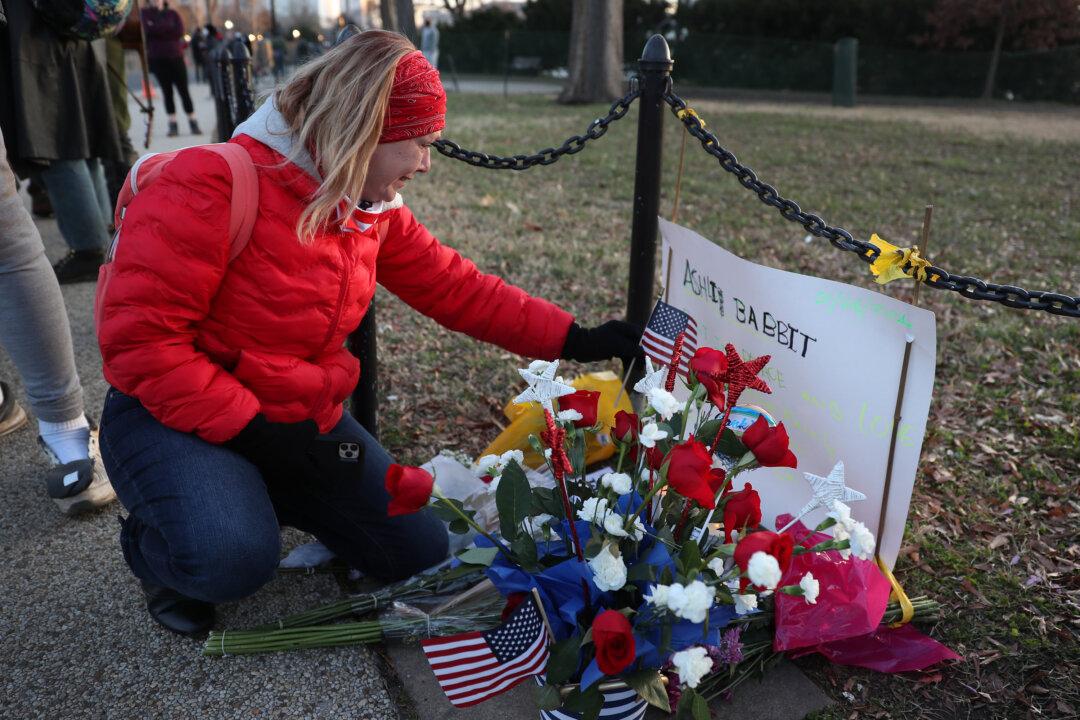The family of Ashli Babbitt, the only person shot during the Jan. 6 breach of the U.S. Capitol, plans to sue the police department and the officer who fired the gun for at least $10 million, their attorney said.
Terry Robert, the family’s attorney told Zenger News’ David Martosko in a report first by published Newsweek, that they plan to sue both the Capitol Police and the officer for wrongful death, and will be seeking $10 million in damages in federal court.




